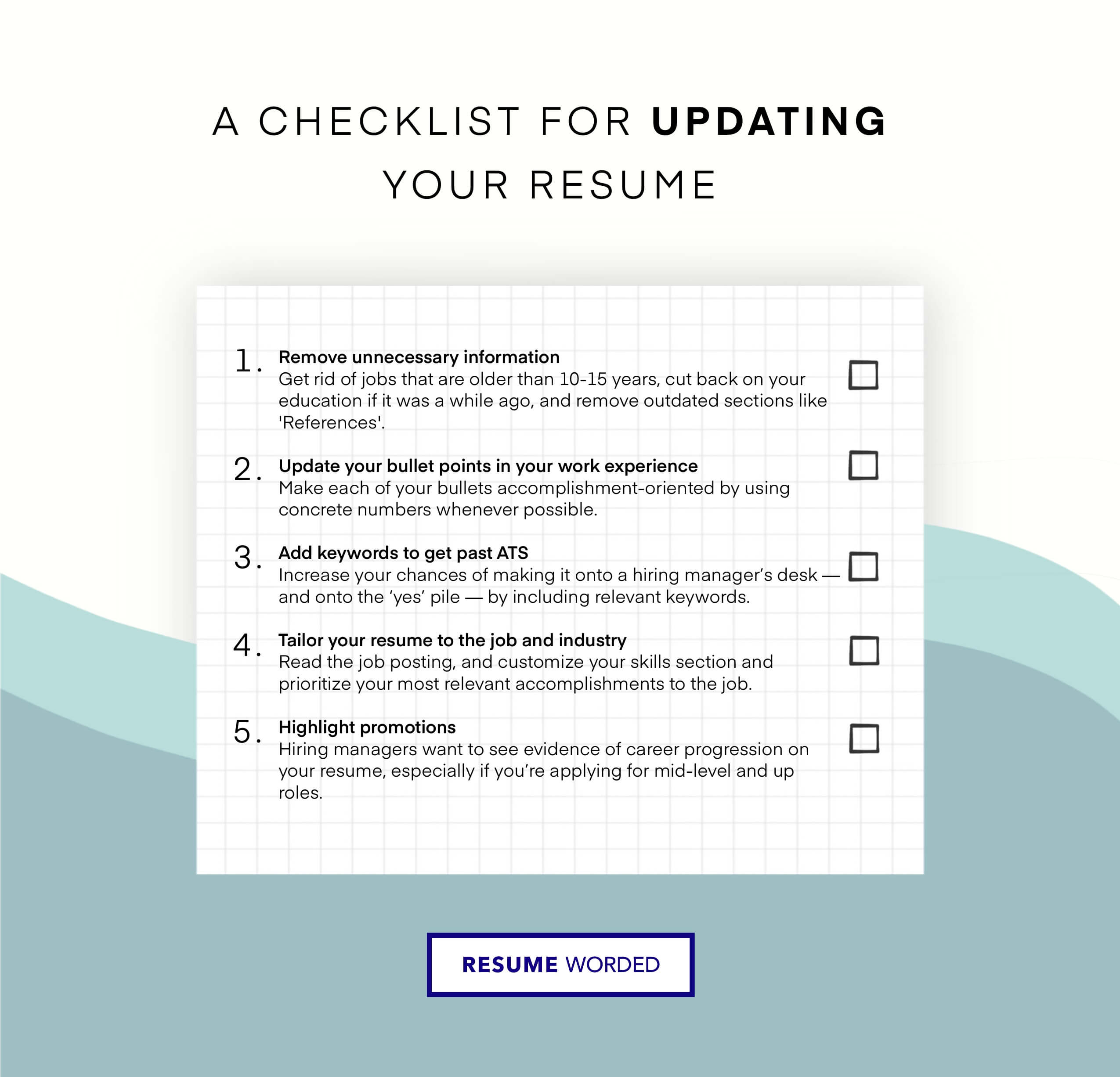Writing a resume isn’t easy at the best of times — but what if you’re having trouble coming up with things to put on it in the first place? While padding your resume may seem like the answer, most hiring managers have seen every trick in the book and are experts when it comes to weeding out fluff.
In that case, how else can you beef up your resume? In this guide, we’ll walk you through tried and true strategies for adding value to your resume — no padding, lies, or exaggeration needed.
How to beef up your resume: Adding genuine value
Beefing up your resume isn’t about adding more fluff or resorting to resume “hacks.” If you feel like you lack skills or experience, you should consider alternative ways of showing that you have what it takes to do the job.
This might include things like:
Let’s take a closer look at some of these.
Internships and volunteer work
Work experience doesn’t need to be paid to go on your resume. To showcase internships and volunteer positions on your resume:
- Specify the organization and your role. If you didn’t have a specific job title, something like “Marketing Intern” or “Volunteer” is fine.
- Include the dates you worked or volunteered. Generally, this means listing the month and year, but “Summer 2025” is fine too.
- List your accomplishments in bullet points along with concrete results whenever you can.
Here’s an example of how to list an internship or volunteer position in your Work Experience section:

Or, if you prefer, you can create a dedicated section for volunteer work:

Projects
You can include all kinds of projects on your resume, including academic, freelance, and personal projects. Barring actual work experience, projects are some of the best things to put on your resume, since they’re tied to a measurable output and often have quantifiable results built in.
To include a project on your resume:
- Start with a concise, descriptive title.
- Describe your role and what you accomplished using action verbs and quantifiable metrics.
- Link the project to the relevant skills it allowed you to develop by explicitly naming the technical skills (like programming languages, software, or tools) you used.
Here’s an example:

Hobbies and extracurricular activities
Hobbies aren’t always a great fit for a resume, but if yours is in need of a little extra oomph, there’s a way to do it right:
- Name the hobby or activity, e.g. “Personal Blogging on Tech Trends.”
- If you were part of a specific organization, include it, even if it’s a student or hobby organization. If you had a specific title within the organization, even better.
- Describe your accomplishments. The more informal the hobby, the more concrete numbers will help here.
Here’s an example of a dedicated extracurricular activities section on a resume:

I recommend uploading your resume to the tool below. It will help identify the strong sections of your resume that should be included and identify any fillers that need to be removed from your resume.
How NOT to beef up your resume: Common mistakes to avoid
Is your resume still failing to make it past the screening process? Check to make sure you haven’t fallen into any of these common traps.
Adding irrelevant information
MISTAKE: The solution to a lackluster resume isn’t just to keep adding things until it fills a whole page. A part-time job you worked in high school is unlikely to ever belong on a resume (unless you’re still in high school, of course).
FIX: Focus on transferable skills instead — and be honest with yourself about what’s actually relevant and what’s just filler. Having a short but impactful resume is better than having a longer, unfocused one.
Lying or exaggerating
MISTAKE: Never, ever lie on a resume — even if you get the job, it’s likely to backfire.
FIX: Be honest about your contributions. Instead of claiming that you single-handedly doubled the company's sales (which sounds unlikely), try “Contributed to a team effort that led to a 50% increase in sales for Q3 2025.”
Buzzword bombing
MISTAKE: Don’t give into the buzzword trend! A sentence like “I’m a team player with excellent synergy skills looking for a challenging role” doesn’t actually add anything to your resume — but it does turn experienced recruiters off immediately.
FIX: Show, don’t tell! Instead of saying you’re a team player, try a bullet point like “Collaborated with a cross-functional team of 5 to increase project completion speed by 20%.”
Instead of bombarding your resume with buzzwords, you should only include keywords and hard skills relevant to the job you’re applying for. Use the tool below to find the right ones.
Visual resume padding
MISTAKE: If you’ve ever been tempted to make it look like there’s more information on your resume than there actually is by increasing your font size, margins, or line spacing — don’t.
FIX: If you’ve tried all the tips above and are still coming up short, why not get personalized help? Score My Resume is a free tool that can give you individualized advice on how to beef up your resume.










